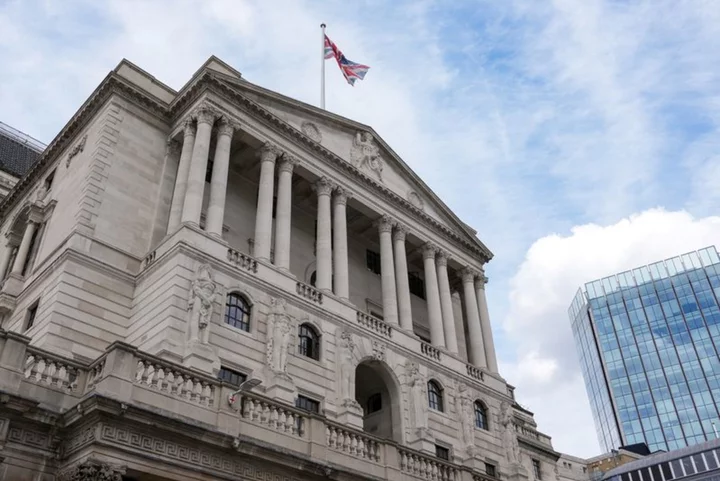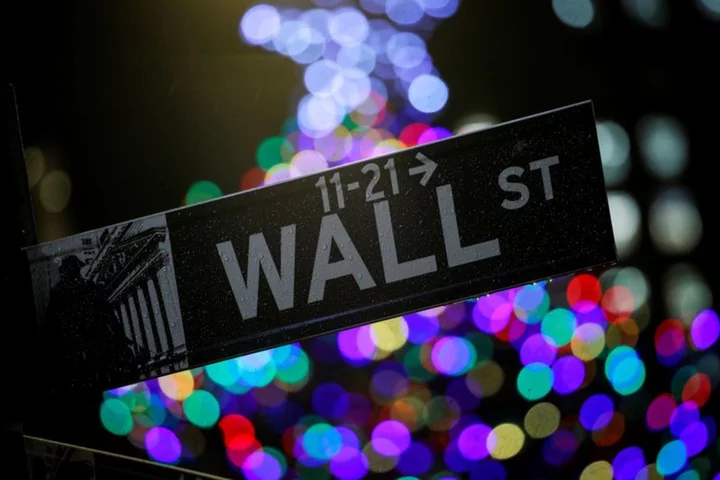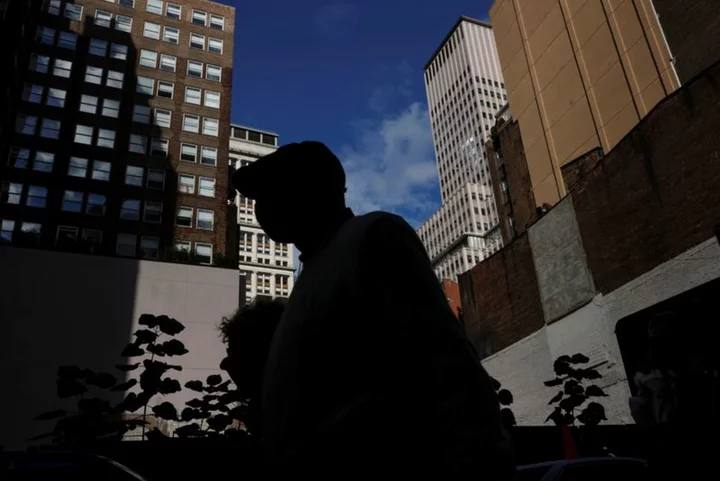By Jonathan Cable
LONDON The Bank of England will be far more aggressive in policy tightening than previously thought as it battles to contain stubbornly-high inflation running at the joint-highest rate among Group of Seven advanced economies, a Reuters poll found.
Consumer prices rose 8.7% in annual terms last month, down from 10.1% in March but faster than the 8.2% predicted in a Reuters poll, while a closely-watched measure of core price rises surged to a 31-year high, official data showed before the poll was conducted.
British government bond prices tumbled in the days after the data was released as investors added to bets high inflation will force the BoE to carry on raising interest rates, while lenders have been withdrawing mortgage deals.
"The UK's April inflation print was a shocker. That calls for action. Given a data-dependent Bank of England, we now expect two more 25bp rate rises (in August and September) on top of the one we already expected in June," wrote Simon Wells at HSBC.
While markets are pricing in a peak of 5.50%, median forecasts in the May 25-31 poll were less punchy, putting Bank Rate 25 basis points higher than its current level at 4.75% following the June 22 meeting and topping out at 5.00% by end-Q3.
Forty-eight of the 50 economists surveyed expected a 25 basis point lift next month, with two expecting a bigger 50 basis point increase. Meanwhile, 27 of 47 saw Bank Rate at 5.00% or higher by end-September.
Bank Rate was seen sitting at 5.00% until early next year, hitting the wallets of indebted consumers already feeling the pinch from a cost of living crisis. It was seen ending next year at 4.00%, higher than the 3.50% predicted earlier.
That marks a sharp upturn from a poll published May 5 which said the BoE would be done after it raised rates to 4.50% on May 11. All but three of 39 common contributors to this poll and the last one lifted their year-end prediction.
Asked about the bigger risk to their forecast, 25 of 27 respondents to an extra question said it was that the peak rate would be higher than they expect rather than lower.
"The risks are skewed to the upside just because the BoE is still quite hawkish and for the past four months in a row near term inflation data have come in above the Bank's own forecast which has been the main justification for raising interest rates," said Kallum Pickering at Berenberg.
The Bank needs to push back against the risk high inflation proves unexpectedly sticky, and may need to raise interest rates further, Monetary Policy Committee member Jonathan Haskel said last week.
Since December 2021 the Bank has made 12 consecutive increases, adding 4.4 percentage points in the sharpest increase in rates since 1989, but had been expected to pause following this month's move - like many of its global peers.
(For other stories from the Reuters global long-term economic outlook polls package:)
(Reporting by Jonathan Cable, polling by Mumal Rathore and Anitta Sunil; Editing by Ross Finley and Chizu Nomiyama)









